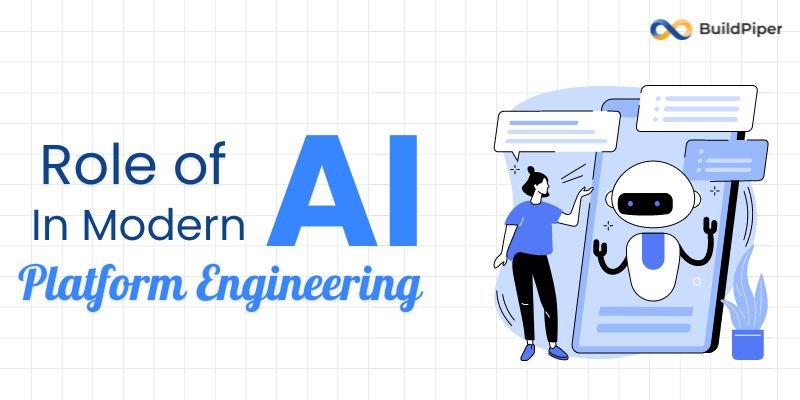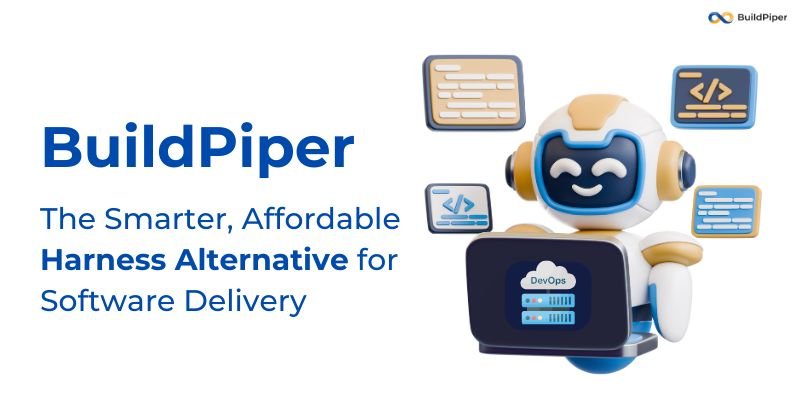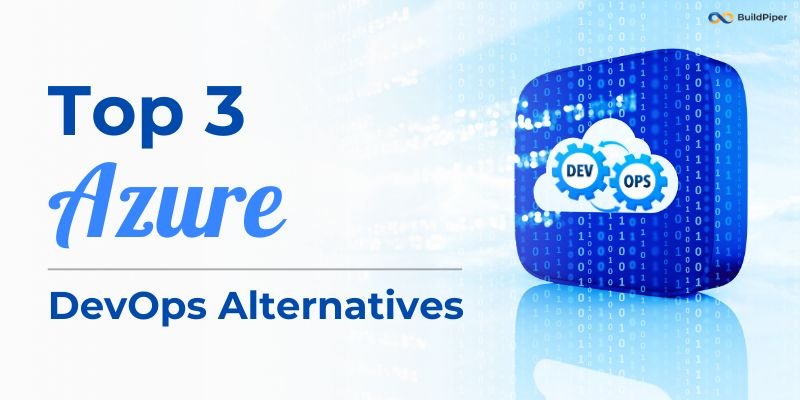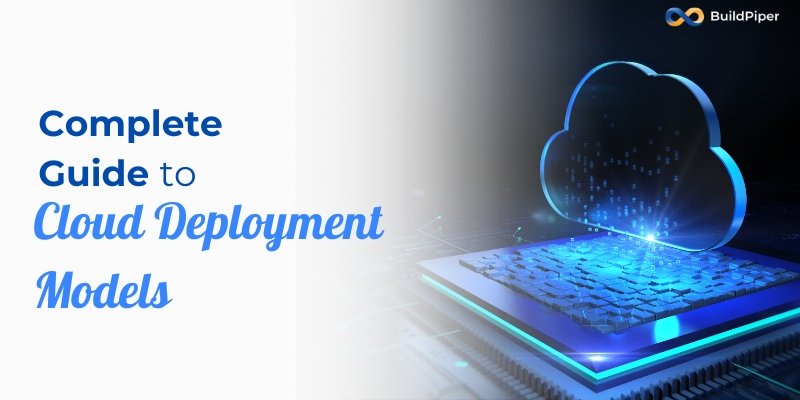In the world of technology, the integration of artificial intelligence (AI) has revolutionized various industries, from healthcare to finance. Modern Platform engineering is one such field where AI is making a significant impact. Today, enterprises, from big to small, are being forced to stay competitive and meet the requirements of an ever-changing digital landscape. In such a scenario, AI-powered platform engineering emerges as a game-changer, enabling businesses to operate more effectively and competitively by introducing new technologies and processes. Here, in this blog, we’ll talk about the critical role that AI is playing in Platform Engineering. Let’s dive in!
Understanding Modern Platform Engineering
Before we understand the role of AI, it’s important to know the concept of Modern Platform Engineering. In today’s interconnected digital world, businesses rely on platforms that enable, the development, deployment and management of applications and services. These platforms lay the foundation for delivering value to customers, partners and stakeholders.
While traditional software development structures have certain limitations, modern platform engineering surpasses the constraints of the established approaches. It relies on agility, scalability and automation leveraging modern technologies such as cloud-native, microservices as well as DevOps practices for improving deployment efficiency. With the increased adoption of containerization tools and orchestration platforms such as Kubernetes, organizations can deploy and manage applications at scale with ease.
The Evolution of AI in Platform Engineering
Earlier, AI was found only in science fiction movies, but it has now transformed into a reality of platform engineering. AI practices were already involved in data analytics, machine learning applications and execution of intelligent operations. But now, AI capabilities are covering various aspects beyond software engineering, making it appropriate for businesses to resolve challenges across the development lifecycle. These include monitoring and observability solutions, automation and much more. Here’s how AI is playing a critical role in Platform Engineering. Let’s take a look!
Automated Infrastructure Management
AI-enabled solutions help organizations automate infrastructure provisioning, configuration and optimization. Machine learning algorithms monitor usage patterns, predict resource demands and regulate the utility settings through their dynamic adjustment mechanisms. This helps businesses achieve maximum performance while reducing costs. AI-powered services are available on platforms such as AWS, Azure and Google Cloud, which help streamline various execution and management tasks happening in the cloud, such as scaling, balancing and allocating resources.
Intelligent Monitoring and Analytics
Traditional monitoring tools often find it difficult to keep pace with the dynamic nature of modern platforms. AI-driven monitoring and observability solutions leverage anomaly detection, predictive analytics and pattern recognition to identify potential issues proactively. By analyzing vast amounts of data in real-time, AI-driven tools provide actionable insights into system performance, security threats and operational efficiency. This information is used by teams to minimize risks and optimize workflows.
Self-Healing Systems
AI enables the development of self-healing systems that are capable of detecting and resolving issues autonomously. Such systems use predictive maintenance and proactive remediation options to identify possible failures in advance, enabling teams to take corrective actions to minimize downtime and service disruptions. Using AI-powered analytics, enterprises can build cloud platforms that ensure high availability and reliability.
Continuous Integration and Delivery (CI/CD)
By automating code analysis, testing and deployment processes, AI enhances CI/CD pipeline workflow. Machine learning-powered CI/CD platforms are used to detect code defects, make predictions on build outcomes as well as recommend optimizations. This helps to ensure products produced are of high quality and are delivered at a faster pace. By integrating AI into CI/CD workflows, businesses can obtain automation at a higher level, shorten the time required for releasing a subsequent release and raise software quality.
Benefits of AI-Powered Platform Engineering
The integration of AI into platform engineering offers several benefits for organizations:
- Enhanced Efficiency: AI takes over tedious processes, reduces the need for human intervention and speeds up workflows, thus improving deployment efficiency. As a result, this allows teams to focus more on higher-valued tasks and intelligent operations.
- Scalability: AI-based solutions, which scale easily to match the growing business needs enable organizations to deploy & manage complex platforms and infrastructure effortlessly and more efficiently.
- Improved Reliability: By leveraging AI for monitoring, analytics and automation, AI helps enhance the speed and reliability of platforms, hence minimizing downtime and service disruptions.
- Innovation: AI, when brought into the picture, provides all the required infrastructure for the development of intelligent applications, predictive analytics and personalized experiences, that drive business growth and competitiveness.
Conclusion
The role of AI in modern platform engineering cannot be overstated. From automated infrastructure management to self-healing systems and intelligent monitoring and observability, AI-powered solutions are transforming how businesses design, deploy and manage digital platforms. By harnessing the power of AI, businesses can reach high levels of efficiency, scalability and innovation, paving the way for success in today’s digital world. As AI continues to evolve, its impact on platform engineering will only grow, shaping the future of technology and redefining the way we build and operate digital platforms.









